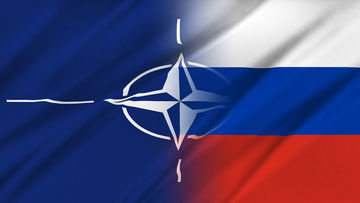Month: July 2018
The NATO and Helsinki Summits
Key Points:
- President Trump begins a week-long visit to Europe where he will meet with NATO leaders and Russian President, Vladimir Putin
- NATO’s mission remains vital to European and global stability
- Russia’s behavior seeks to disrupt NATO’s coherence and to challenge U.S. global leadership
- Despite the challenges, there are opportunities for cooperation
Background:
Late last month, the Trump administration announced there would be a formal meeting between President Trump and Putin. Trump and Putin have met twice before but on the fringes of international gatherings. Given Russian meddling in U.S. elections and their destabilizing actions globally, tensions between the U.S. and Russia are high.
What Has Happened:
- During the July 16th summit in Helsinki, Finland, the two leaders are expected to discuss shared objectives in Syria, Russian reentry to the G7, nuclear non-proliferation (with a clear emphasis on Iran and North Korea), Russian cyberespionage, and hopefully Russia’s criminal annexation of Crimea in 2014
- The summit will be on the heels of the NATO summit held in Brussels July 11/12
- President Trump and his predecessors have long been critical of the inadequacy of NATO alliance burden sharing:
- The President’s threat to remove U.S. forces from Europe should cause alarm – it could happen, and it would be disastrous
Why it Matters:
- Russia has effectively undermined 40 years of American foreign policy in the Middle East by filling the vacuum left by the United States’ limited commitment in Syria
- Syria has allowed Iran to exert more influence in the region and they are entrenched with the resilient Assad regime
- Syria, and Iran’s involvement in the conflict, will likely be a primary discussion point and a source of agreement between Trump and Putin:
- Israelis are on edge given Iranian encroachment into the conflict
- It is possible that Putin leverages his influence of Iran to gain an advantage in the hopes of lifting sanctions and possible G7 re-entry
- These two summits are inherently connected:
- Putin is a destabilizing actor, and since his annexation of Crimea, NATO members have increased their defense spending
- Remember, there is the real possibility of a significant decrease in the U.S. military posture in Europe
“If President Trump moves forward with minimizing U.S. military presence in Europe, look for U.S. stocks to weaken as the market will start pricing in a greater rift between Europe and the U.S.; strengthening China’s position in tariff negotiations as they could cozy up with Europe. Russia will likely have the most to gain out of the Helsinki Summit, regardless of points achieved or not achieved by the Trump administration, as it elevates Putin’s position to have the summit in the first place, given Russia’s disruptive deeds. Also, post the Korean summit, the world will be less willing to believe positive headlines without any observable actions.”
Peter Tchir, Head of Macro Strategy at Academy Securities
Original Post 07/10/2018







